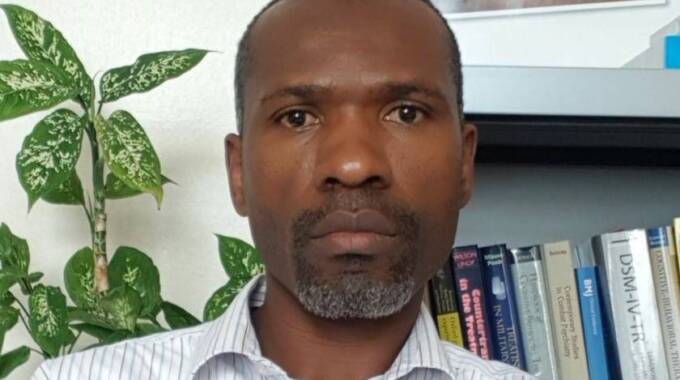
The Sunday Mail

Mertha Mo Nyamande
WE all have mental health issues, but some are not as severe as others.
Think of those things we somehow do not feel right about within, though not all the time, or those others comment on, but we just do not care because this is who we are.
Maybe we just do not sleep well or we eat just one meal a day but we have become used to it.
Some cannot start a day without drinking alcohol or they need to take some substance to face certain situations. Nevertheless, we carry on as we are, we perform well in school, feed our families well and life goes on.
So, what is the problem?
The Shona adage “Chisi hachieri musi wacharimwa” (The consequences of a bad action might not be immediate; they can manifest later) can be the answer.
The effects of bad behaviour might not show immediately but will certainly do so in due course. Our mental health deteriorates over time if we do not attend to it and feed it with good and healthy habits. Things we ignore or feel will simply go away, because we think it is not a big deal, will not disappear. They fester and when we die without resolving them, they are passed on to our children and grandchildren, or even siblings. Take some time to reflect on where you are in life and how you got there. Imagine all the issues you are not dealing with at the moment being passed to your children or grandchildren. Starting with our psychologist colleagues, how many of us have had and continue to utilise therapy, counselling or the clinical supervision requirement? This question seeks to address the issue of how we would expect others to buy what we are selling when we ourselves do not even use the product. The quandary this creates is that, while we avoid issues generally as a society, those who provide supportive services will also be inclined towards avoidance as a culture. We cannot live in a society of avoidance.
Counselling is more about trying to keep things from falling apart, while the clinical bit focuses on how to get things back on track after they have split up. While we carry on with our lives, it is important to look at those lives in a critical manner, one that allows for advancement and progression, especially changing the things that do not work well for us, individually or collectively — things like culture and traditions. The more we know, the better we should behave. We cannot know better when we continue to hold on to old cultures/behaviours.
Counselling, therefore, helps to provide safe spaces where we can talk about whatever issues we have without fear of being judged. This is the time for us to judge ourselves and take corrective measures. If we do not judge ourselves kindly with the full information available and appraise our behaviours, others will do so more harshly with the ignorance they have about our issues. Life is a continuum. In most instances, the issues we are battling would have been left off by those who came before us. So, it is up to us to work on these issues or continue blaming our predecessors without finding a solution. Do we want to present for help after things have fallen apart?
Mental health services have become more clinical and reactive than proactive as people largely present only in extreme cases, not only when things have fallen apart, but also to the point that they cannot cope — beyond repair.
Yet the services are available for supportive counselling before the violence, the abuse and exploitation. It is sad that people are not accessing the services on time to avoid damage.
We need to change the culture of avoidance and take responsibility from now on.
While we may carry burdens from our predecessors — who may not have the information we now have — the onus is on us to act and halt the deterioration. We either present to mental health service providers and maintain good habits through counselling, or we present during clinical crises. The choice is ours.
Let us seek help or risk burdening our children with issues we could address today.
Mertha Mo Nyamande is a psychotherapist. He can be contacted on: [email protected] or @ www.i-wellbeing.weebly.com



